Pregnancy is a remarkable journey filled with body changes and stages of development. One of the first signs of hemorrhoids in early pregnancy is rectal bleeding or the appearance of blood on toilet paper after wiping. If your blood volume increases during pregnancy and your uterus exerts pressure on your pelvis, the veins in your rectum may enlarge, forming clusters resembling grapes.
During pregnancy, piles can develop because of hormonal changes that cause vein relaxation. Common symptoms of piles include itching, aching, soreness, or swelling around the anus, pain during bowel movements, and subsequent mucus discharge.
In this blog post, we'll discuss Hemorrhoids Early Pregnancy Signs and symptoms and causes of hemorrhoids during early pregnancy. Get helpful prevention tips.
The Takeways
- Hemorrhoids, or piles, are a common condition experienced by pregnant women, affecting about 50% of mothers-to-be. Symptoms can include increased blood volume, constipation, bloating, cramping, light bleeding, fatigue, and nausea.
- Hemorrhoids may also be a pre-pregnancy symptom. Other early signs of possible pregnancy could include breast changes, fatigue, frequent urination, food cravings, backache, and breathlessness.
- There are many reasons why pregnant women are more prone to hemorrhoids. These include iron supplements, weight gain, hormone increase, increased pressure on the rectum, prolonged sitting or standing, genetics, and previous hemorrhoid occurrence.
- Hemorrhoids can also occur postpartum, mainly due to the strain during labor, hormonal changes, post-delivery bowel issues, prolonged sitting, body recovery, lifestyle factors, and postpartum stress.
- Preventing and managing hemorrhoids in early pregnancy can be achieved through practices such as staying hydrated, eating a high-fiber diet, regular exercise, minimizing prolonged sitting or standing, maintaining good hygiene, seeking medical attention if symptoms persist, using stool softeners under medical supervision, and avoiding strenuous bowel movements.
Hemorrhoids Early Pregnancy Sign: 7 Symptoms

Hemorrhoids, also known as piles, are one of the common health issues experienced by pregnant women. According to estimates, approximately 50% of pregnant women suffer hemorrhoids at the end of their pregnancy. Hemorrhoid, an early pregnancy sign, is a topic of interest for many expecting mothers as it can provide an early indication of pregnancy. Here are some symptoms:
Increased Blood Volume
As pregnancy progresses, the pregnant woman's blood volume increases to sustain the growing fetus. This increased blood flow can cause hemorrhoids through inflamed veins. Swollen labia during pregnancy can begin as early as your first trimester and may get worse as your pregnancy progresses. The uterus and baby are getting bigger and applying more pressure.
Constipation
Early pregnancy symptoms, such as constipation, can lead to hemorrhoids. An expanding uterus stresses the digestive system and can slow bowel movements, causing constipation. This can lead to straining when passing bowel movements, which can lead to hemorrhoids.
Rectal Pressure and Pain in Early Pregnancy
One symptom that might catch many by surprise is rectal pressure or pain during early pregnancy. This discomfort is primarily due to the increased pelvic blood flow and the pressure exerted by the growing uterus. The expanding uterus puts pressure on the veins that drain the lower half of your body, including those around the rectum, leading to a sensation of fullness, discomfort, or even pain.

Anus Pain
This is often related to rectal pressure but can also be exacerbated by hormonal changes that affect your gastrointestinal tract, leading to constipation. Straining during bowel movements can worsen the discomfort or lead to hemorrhoids and swollen blood vessels in the rectal area, causing pain.
Waist Sign
The 'waist sign' refers to a phenomenon where the waistline begins to disappear as the uterus expands, even in the early stages of pregnancy. This change can cause a feeling of tightness around the waist and may contribute to discomfort or a sense of pressure in the lower abdomen and pelvic area.
Stomach Discomfort During Early Pregnancy
Many women experience stomach discomfort during early pregnancy. This can range from nausea (often called morning sickness) to bloatedness or indigestion. These symptoms are mainly due to hormonal changes, particularly increased progesterone, which can slow down digestion and relax the digestive tract muscles.
Bloating
Bloating is another early pregnancy symptom that can contribute to the development of hemorrhoids. As the uterus expands, it can put pressure on the rectal area and cause veins to swell, leading to the development of hemorrhoids.
Cramping and Light Bleeding
In some women, hemorrhoids can cause cramping and light bleeding. This is because the swollen veins can be easily irritated and may bleed when passing stool. While it is not uncommon to experience minor bleeding when wiping, it is essential to consult with a healthcare provider if bleeding persists or is excessive.
Feeling Tired and Sleepy
Feeling tired and sleepy during early pregnancy can also cause hemorrhoids. Fatigue can lead to decreased physical activity and prolonged sitting or standing, which puts additional strain on the rectal area and increases hemorrhoids' risk. Use zinc oxide ointment (Desitin, Balmex) or petroleum jelly (Vaseline) to protect the affected skin from moisture. If you get itchy around your anus (back passage), you might have hemorrhoids.
Nausea and Vomiting
An early sign of hemorrhoids is nausea and vomiting during pregnancy. Hemorrhoids can cause discomfort and gastrointestinal distress by irritating and inflaming the rectal area.
Nausea and vomiting during early pregnancy are commonly associated with morning sickness but can also be a sign of hemorrhoids. The rectal area is closely linked to the digestive system, so that inflammation can cause nausea.
Hemorrhoid Flare-up in Early Pregnancy
There is a high incidence of hemorrhoids in pregnant women, especially in their early stages. Lower rectum and anus veins may swell from constipation or hormonal changes. Pain and discomfort can result from this, which affects daily routines. The condition can worsen with poor hygiene, long sittings, and bowel movements.

Pre and Teenage Pregnancy Symptoms
Prior to confirming a pregnancy, many individuals may experience subtle warning signs and symptoms that hint at the possibility of conception. These early indicators can vary among women but are commonly reported across pre-pregnancy journeys. Here's a breakdown of some typical pre-pregnancy symptoms to be mindful of:
Breast Changes
- Tenderness and Sensitivity: Description of how breasts may feel fuller, sore, or more sensitive because of hormonal shifts.
- Nipple Changes: Note on nipples becoming more prominent or darker as an early sign of potential pregnancy.
Fatigue
Increased Tiredness:- Explanation of feeling unusually fatigued even after adequate rest, attributed to hormonal changes and increased energy demands.
Frequent Urination
- Urge to Urinate Frequently: Insight into the need for more bathroom breaks due to hormonal influences causing increased blood flow to the kidneys.
Food Cravings
- Unusual Appetite Changes: Mention of sudden desires or aversions to certain foods, potentially linked to hormonal fluctuations impacting taste and smell perceptions.
Backache
- Lower Back Discomfort: Illustration of mild-to-moderate back pain often experienced initial pregnancy because of hormonal changes and changes in posture.
Breathlessness
- Shortness of Breath: Explanation of feeling breathless or experiencing difficulty breathing even without physical exertion, possibly due to increased progesterone levels affecting lung function.
Symptoms of Internal Hemorrhoids During Pregnancy
Internal hemorrhoids during pregnancy can present various symptoms, mainly due to the increased pressure on the pelvic veins and constipation often associated with pregnancy. While internal hemorrhoids might not always be visible or externally noticeable, they can still cause discomfort and symptoms such as:
- Itching: One of the most common symptoms, itching in the anal region, is often caused by irritation from the hemorrhoid itself or by the leakage of mucus that can irritate the sensitive skin around the anus.
- Aching or soreness: The increased pressure from the growing uterus and the additional circulation during pregnancy can lead to a feeling of heaviness or soreness in the anal region. This discomfort can be exacerbated when sitting or standing for long periods.
- Swelling around your anus: While internal hemorrhoids are less likely to be felt or seen, swelling around the anus can occur if there is significant inflammation or if external hemorrhoids develop alongside internal ones.
- Pain during bowel movements: Although less common with internal hemorrhoids, some individuals may experience discomfort or pain during bowel movements if the hemorrhoid has become irritated or if there is a small tear (anal fissure) in the anus's skin.
- Bleeding: Perhaps the most alarming symptom, but often not serious, is light bleeding noticed during bowel movements. Blood from internal hemorrhoids is usually bright red and might be seen on the toilet paper or in the toilet bowl.
7 Causes of Hemorrhoids During Pregnancy

Hemorrhoids are a common symptom in early pregnancy, especially during the second and third trimesters. There are several reasons why pregnant women are more prone to hemorrhoids, including:
- Iron Supplements: Pregnant women often take iron supplements. Iron supplements can cause constipation, which, as discussed earlier, can lead to hemorrhoids.
- Weight Gain: During pregnancy, women gain weight, which can put pressure on the rectum and anus, leading to hemorrhoids.
- An Increase in Hormones: During pregnancy, the body produces more hormones than usual. Some of these hormones relax veins and make them more prone to swelling.
- Increased Pressure on the Rectum: As the fetus grows, it puts pressure on the rectum and the veins around it. Venous swelling and inflammation can result from this pressure.
- Prolonged Sitting or Standing: When you spend a great deal of time sitting or standing, you're more likely to develop hemorrhoids. This is because it can increase pressure on the rectal area.
- Genetics: If members of your family have hemorrhoids, you may be more likely to develop them.
- Previous Hemorrhoid Occurrence: If you've had hemorrhoids before, you're more likely to develop them again during pregnancy.
Reasons of Hemorrhoids After Giving Birth
Hemorrhoids postpartum are a common concern for many new mothers and can often be attributed to various factors related to pregnancy and childbirth. Here's an explanation of why hemorrhoids may occur after giving birth.
Increased Strain During Labor
- Pushing During Delivery: The intense pushing efforts during labor can significantly pressure the rectal area, leading to the development or exacerbation of hemorrhoids.

Hormonal Changes
- Postpartum Hormone Fluctuations: After childbirth, hormonal shifts in the body can impact blood vessels, potentially causing them to swell and contribute to hemorrhoidal discomfort.
Constipation
- Post-Delivery Bowel Issues: Constipation is a common issue postpartum because of factors like reduced physical activity, dietary changes, and discomfort while passing stool, all of which can strain the rectal area and worse hemorrhoids.
Prolonged Sitting
- Extended Periods of Sitting: New mothers often spend prolonged periods sitting while caring for their newborn, which can restrict blood flow to the rectal area and increase the likelihood of hemorrhoid formation or irritation.
Body Recovery
- Physical Recovery: The body undergoes significant changes during and after childbirth, including healing processes that can leave the pelvic floor and rectal area vulnerable, making it more susceptible to hemorrhoids.
Lifestyle Factors
- Diet and Hydration: Inadequate fiber intake, dehydration, and poor toilet habits postpartum can contribute to constipation and straining during bowel movements, further aggravating hemorrhoids.
Postpartum Stress
- Emotional Strain: Stress and anxiety post-birth can affect bowel movements and digestive function, potentially affecting the development or persistence of hemorrhoids.
8 Prevention Tips for Hemorrhoids in Early Pregnancy

Hemorrhoids in early pregnancy are a common concern for expecting mothers. These swollen rectal veins can cause discomfort, itching, and bleeding. The good news is that there are ways to prevent and manage hemorrhoids during pregnancy.
The Prevention of Hemorrhoids During Pregnancy
One way to prevent hemorrhoids during early pregnancy is to adopt healthy habits and lifestyle changes. Here are some tips that can help:
- Drink Plenty of Water: Drinking enough water softens stool and makes it easier to pass, reducing the risk of hemorrhoids.
- Eat a High-Fiber Diet: Consuming a fiber-rich diet can help regulate bowel movements, preventing constipation that can lead to hemorrhoids.
- Exercise Regularly: Exercise can stimulate bowel movements and improve blood circulation, reducing the likelihood of developing hemorrhoids.
- Avoid Prolonged Sitting or Standing: Constant sitting or standing can cause pressure on the rectal veins, leading to swollen hemorrhoids. Taking breaks and moving around helps alleviate the stress.
- Use Hygiene Practices: Regular clean and dry anal areas can prevent irritation and infection, reducing the risk of hemorrhoids.

Managing Hemorrhoids During Early Pregnancy
Early detection and management of hemorrhoids can prevent them from worsening or becoming chronic. Here are some tips for managing hemorrhoids during early pregnancy:
- Seek Medical Attention if Symptoms Persist: If hemorrhoid symptoms persist or worsen over time, it's essential to get medical attention.
- Use Stool Softeners Under Medical Supervision: Stool softeners can help ease constipation, making bowel movements less painful and reducing the risk of hemorrhoids. However, it's critical to check with a doctor or midwife before taking any medication.
- Avoid Straining During Bowel Movements: Strenuous bowel movements strain the rectal veins, which results in hemorrhoids. Sitting on the toilet for too long can also increase the risk of hemorrhoids. It's vital to avoid straining during bowel movements and not to force the stool to pass.
Conclusion
Pregnancy is an incredible journey full of changes, and while most are positive, some can be uncomfortable, even painful. One more prevalent and understated challenge is hemorrhoids in early pregnancy, which affects many expectant mothers.
Hemorrhoids are problematic, and early detection is crucial for successfully managing the symptoms. Therefore, it's essential to know the signs, symptoms, and risk factors so that you can take steps to manage them before they get severe.

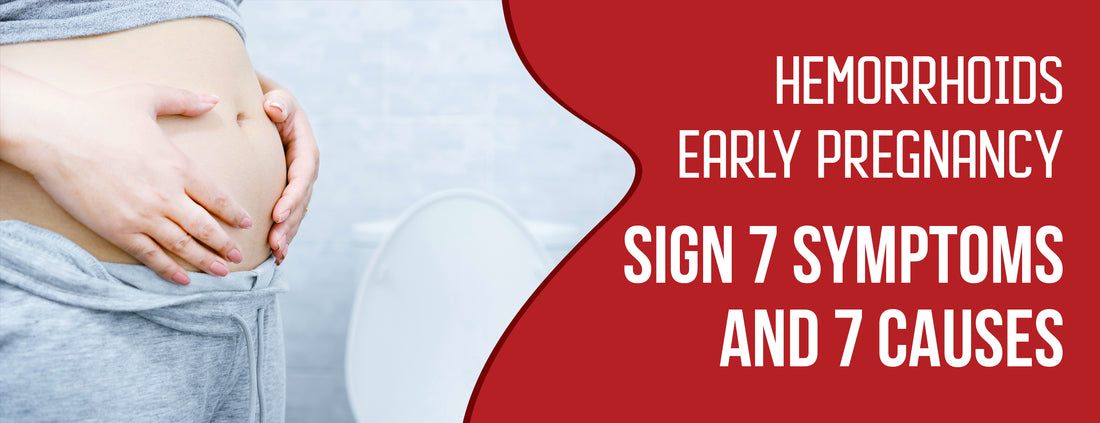




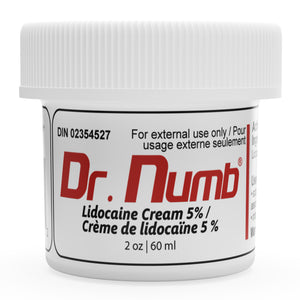
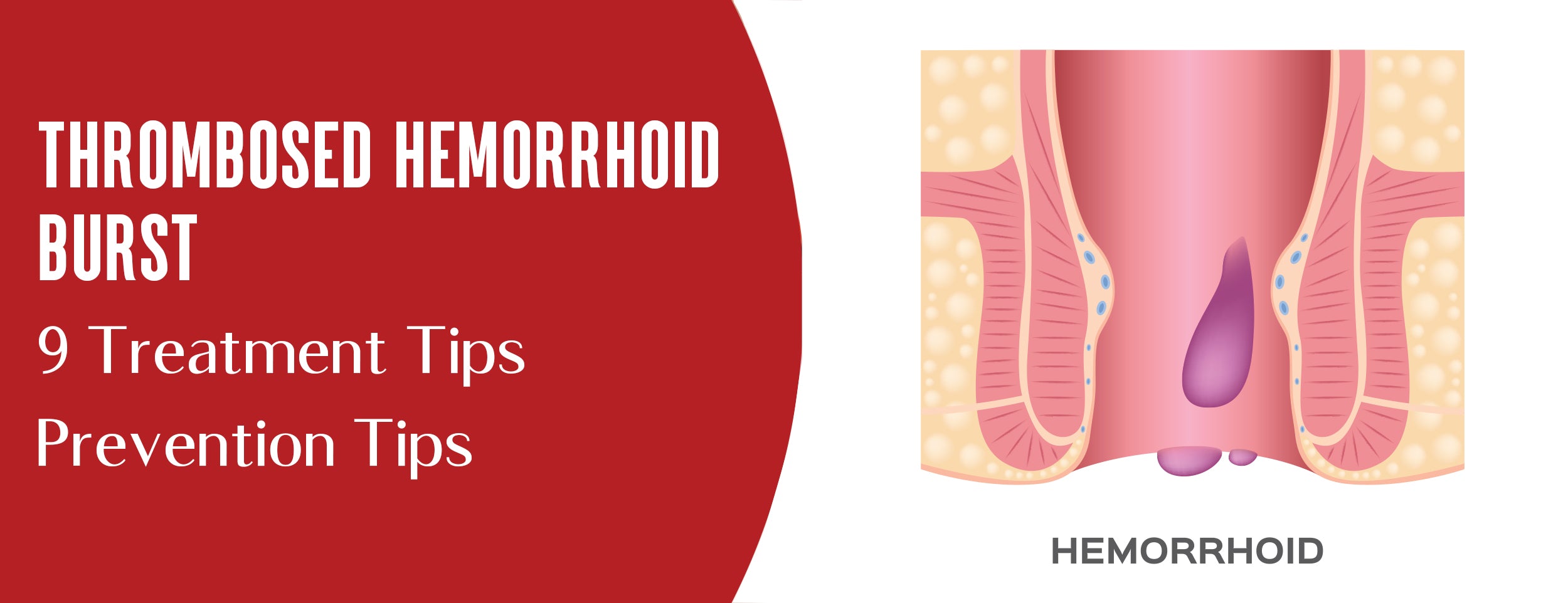
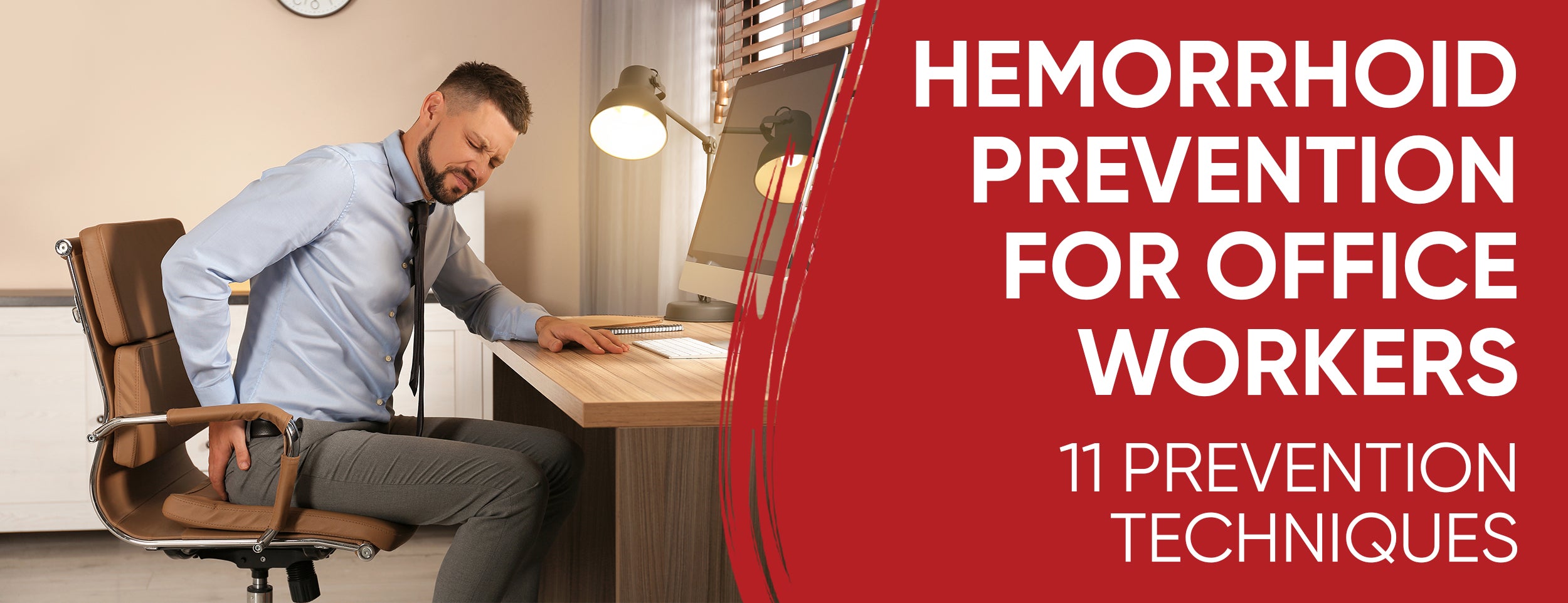
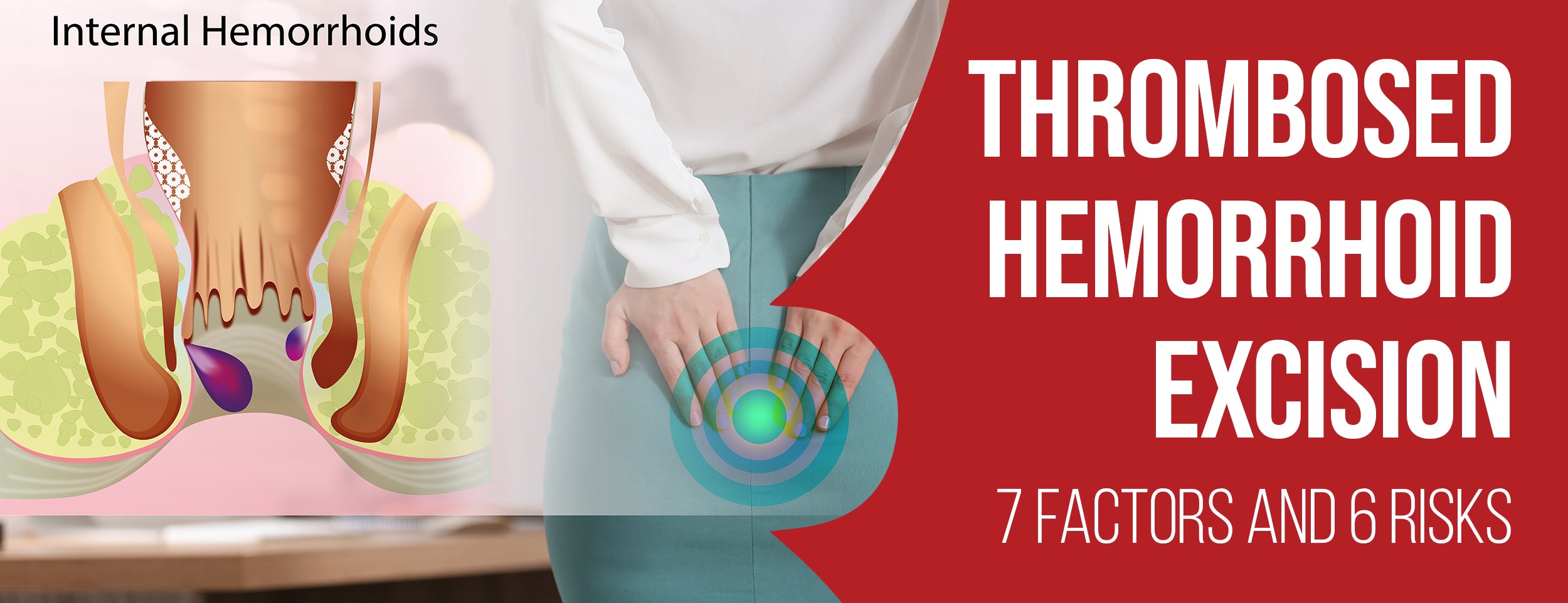
![Precautions & 6 Steps to Draining Thrombosed Hemorrhoids [DIY]](http://drnumb.ca/cdn/shop/articles/Draining_Thrombosed_Hemorrhoid_Yourself__6_Steps_8_DIY_Tips_With_Precautions.jpg?v=1713931775)

